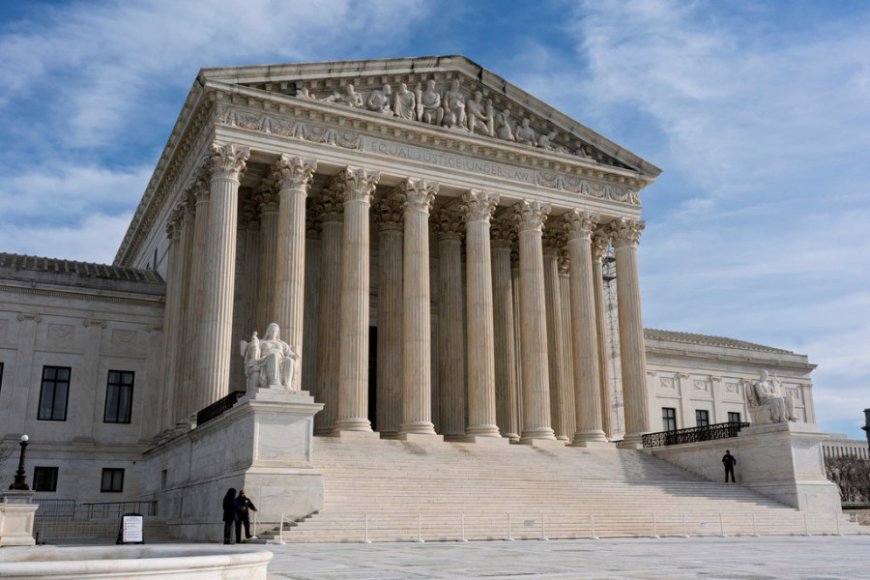Parental rights restored: Mahmoud case is a victory for families and faith
This is not just about child-inappropriate books or curricula. It is about trust.

Three years ago, the doors of my daughter’s school abruptly closed on my role as her mother. They dismissed my voice and removed my ability to make decisions regarding her education.
Last month, the Supreme Court restored what should have never been taken away.
The Court’s 6-3 ruling against Montgomery County School Board is a lifeline for parents like me, reaffirming a bedrock principle of our nation’s fabric: Parents have the right — and the responsibility—to raise their children according to their faith and values. It is not the government’s place to dismantle that sacred bond.
The storybooks at the heart of this dispute were championed as tools for “inclusivity,” but they contradicted this label. Rolled out in 2022 for pre-K through fifth-grade classrooms, these materials went beyond their facade of promoting kindness. Instead, they aimed to immerse children — some as young as three — in complex and radical ideas about gender and sexuality.
One book, written for preschoolers, introduced obscure symbols such as the “intersex flag” and “leather” alongside celebratory nods to drag culture. These topics are ill-suited for children who rely on bedtime stories to ease them into sleep.
Initially, concerned parents were given the option to opt-out of lessons containing these books. This was entirely consistent with Maryland law, which permits exemptions from coursework on human sexuality, as well as Montgomery County’s longstanding Religious Diversity Guidelines. Under those guidelines, all families — whether Catholic, Muslim, Jewish, or from any other background — were assured the right to excuse their children from material contrary to their beliefs.
But that promise proved fleeting. In 2023, the school board made an abrupt and heavy-handed reversal. Parental notifications ceased, and opt-out requests would no longer be respected. Suddenly, choices that rightfully belonged to parents were stripped away.
For my family, this policy wreaked havoc. My 12-year-old daughter, a child with Down syndrome, faces profound challenges in a school setting. She is deeply trusting of authority and struggles to reconcile conflicts between what the parents teach at home and what her teacher presents in the classroom. Her faith, like her trust, is tender and unguarded. The trust we built with her over years can be eroded with a single lesson that contradicts our Catholic convictions.
We were forced into an impossible situation, choosing between her education and her spiritual well-being. With much prayer and deliberation, my husband and I made the wrenching decision to withdraw her from the public school system altogether.
The cost of homeschooling — financial, emotional, and logistical — has been immense. Specialized resources for a child with learning disabilities are not inexpensive, nor are they easy to replicate outside a structured classroom. But we believed we could not stand by while the school undermined our faith within the very institution meant to nurture her growth.
We are not alone in this experience. Parents across the country have been grappling with these same dilemmas. Some have resorted to homeschooling, like us, bearing the enormous burden of going it alone. Others, lacking the resources or circumstances to make that pivot, found themselves compelled to send their children into classrooms where they feared what their children were being taught and what they might uncritically absorb.
This is not just about child-inappropriate books or curricula. It is about trust. It is about parents having confidence that their role in shaping their children’s hearts and minds is being respected and not overridden.
When officials choose to betray that trust, what recourse remains other than to fight back?
That’s what brought our family, along with many others of diverse faiths, to federal court. Together, we sought not to censor, ban, or isolate, but to reclaim our rightful place in these consequential decisions. We asked, plainly and simply, to be notified when such topics would arise in the classroom and to be allowed the choice to opt-out. For more than two years, the lower courts sided with the school board, leaving our pleas unheard.
Finally, last week, we received the affirmation that had been so long denied. The Supreme Court ruled, in no uncertain terms, that parents do not relinquish their rights at the schoolhouse doors.
Justice Samuel Alito, writing for the majority, captured the heart of the victory, stating, “It is both insulting and legally unsound to tell parents that they must abstain from public education in order to raise their children in their religious faiths.”
This ruling is not about denying children their opportunity to learn about the broader world. Rather, it is about restoring a vital balance — ensuring that education does not come at the expense of family values or parental authority.
For me, this fight was never about convenience or personal gain. It was about protecting the sanctuary of our home and the spiritual foundation we strive to install in our children. Sacrifice is at the core of parenthood, and sometimes, that sacrifice leads you to places where you never expected — like a courtroom.
Today I feel an overwhelming sense of gratitude for the Justices who chose to honor the sacred bond between parent and child. No government should hold the power to sever that bond. Parents know what their children need, and now, we have the affirmation to act on that knowledge once again.
Grace Morrison is a mother of seven and a board member of Kids First. She lives in Montgomery County, Md.
What's Your Reaction?























